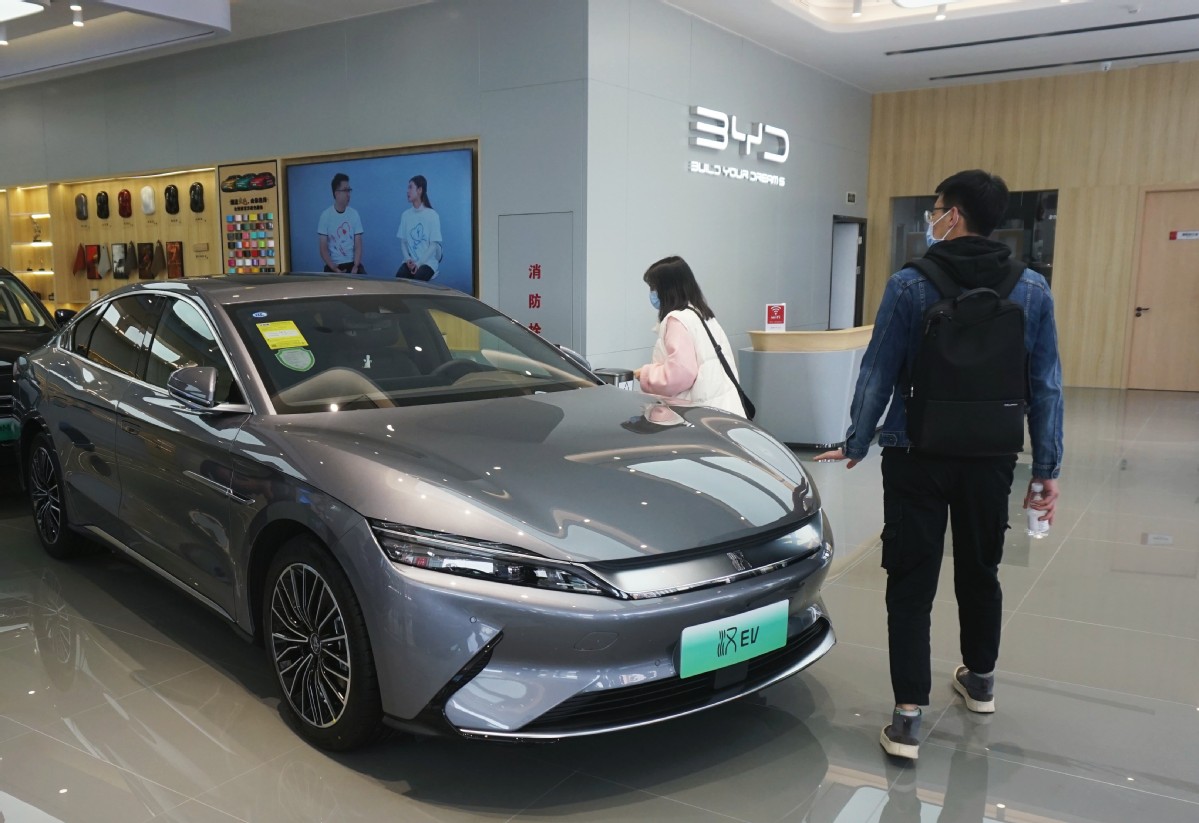
Visitors look at new energy vehicle in a store in Hangzhou, East China’s Zhejiang province, on April 5, 2022. [Photo/IC]
China’s production and sale of new energy vehicles are expected to double and take 65 percent of the global market in the first quarter of this year, People’s Daily reported on Thursday.
China’s new energy passenger vehicles maintained continuous rapid growth despite the negative effects from the epidemic, chip shortage and lithium price rise, said Cui Dongshu, secretary-general of the China Passenger Car Association.
Chinese automaker BYD announced on Sunday that it had stopped producing traditional fossil fuel-powered vehicles since March. The company set a new monthly sales record for a Chinese new energy vehicle maker with sales of more than 104,300 units in the same month.
Another five new energy vehicle start-ups recorded over 10,000 units monthly sales, more than doubling their growth rate year-on-year, the report said, citing the monthly reports announced on April 1.
GAC Aion’s factory completed capacity expansion and upgrading from Jan 31 and Feb 14, said Gu Huinan, general manager of GAC Aion, a popular EV maker based in Guangzhou, Guangdong province.
After that, the production efficiency of GAC Aion’s smart factory increased by 45 percent and customization capacity rose by 35 percent, which strongly promoted the rapid breakthrough of production and sales of the company in March, Gu said.
China’s automobile production capacity layout is relatively balanced and the productions in East, Southwest, South, North and Northeast China accounted for 19, 17, 16, 14 and 12 percent, respectively, according to Cui.
The relatively complete and controllable industrial chain of new energy vehicles also provides strong support for the growth of the industry, Cui said.
The penetration rate of new energy vehicles in China rose from 6 percent in January 2021 to 22 percent by the end of last year, an average increase of 1.3 percentage points per month, said Wang Chuanfu, chairman of BYD.
With excellent performance, competitive new electric vehicles and enhancing user-friendly environment, China’s EV industry has entered into a state mainly driven by the market, Wang said.
Entering into new stage, breakthroughs are becoming more difficult and complex and new situation and problems need to be resolved, said Xin Guobin, vice-minister of industry and information technology.
New energy vehicle industry’s supporting policy system should be improved, integrated innovation needs to be deepened, the supply of automobile chips needs to be continuously ensured, and oversight of security in function, data, cyber should be strengthened, Xin said.
China’s new energy vehicle market enters a new stage of rapid growth from 2021 to 2030. The sale of new energy vehicles is expected to match fossil fuel vehicles by around 2030, said Ouyang Mingao, academician of the Chinese Academy of Sciences.
